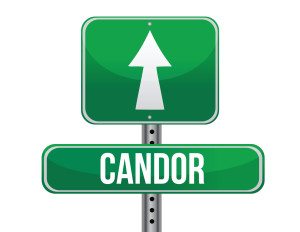 Two Chicago criminal defense lawyers charged with perjury and obstruction of justice were recently acquitted as reported in the Chicago Tribune. The lawyers had been indicted for allegedly coaching defense witnesses to lie under oath. The prosecution pointed to the existence of question and answer scripts seized in a raid of the lawyers’ offices. The Q&A scripts were drafted by the lawyers for witness preparation and allegedly contained numerous false statements. In some cases, multiple versions of the scripts existed.
Two Chicago criminal defense lawyers charged with perjury and obstruction of justice were recently acquitted as reported in the Chicago Tribune. The lawyers had been indicted for allegedly coaching defense witnesses to lie under oath. The prosecution pointed to the existence of question and answer scripts seized in a raid of the lawyers’ offices. The Q&A scripts were drafted by the lawyers for witness preparation and allegedly contained numerous false statements. In some cases, multiple versions of the scripts existed.
Although the lawyers were acquitted of any criminal wrongdoing, this case raises a number of important ethical issues.
Obviously, lawyers are prohibited from offering evidence to a “tribunal” that the lawyer knows to be false. See ABA Model Rule of Professional Conduct 3.3(a)(3). The district court here concluded the lawyers did not knowingly present false testimony.
Duty of Candor To “Tribunal”
As a threshold matter, the rules define a “tribunal” as any legal body or entity that acts in an adjudicative capacity. For patent and trademark attorneys, a “tribunal” is broadly defined to mean “the [USPTO], a court, an arbitrator in a binding arbitration proceeding or a legislative body, administrative agency or other body acting in an adjudicative capacity.” The USPTO’s duty of candor rules thus apply in both ex parte and inter partes matters before the Office. They also apply to practitioners who are involved in ethics investigations by the USPTO’s Office of Enrollment and Discipline. Indeed, violating the duty of candor in a matter before the OED is itself grounds for professional discipline. For a list of USPTO practitioners who have been disciplined by the Office, a useful reference is the OED’s “FOIA Reading Room.”
What happens if a witness changes their story (maybe multiple times) before trial. Should the lawyer still allow the witness to testify? What if the lawyer reasonably believes the witness is lying, but allows the witness to testify? Would this run afoul of the rules of professional conduct?
According to Model Rule 3.3(a)(3), “[a] lawyer may refuse to offer evidence, other than the testimony of a defendant in a criminal matter, that the lawyer reasonably believes is false.” This rule implies a lawyer cannot preclude a criminal defendant from testifying and is not required to preclude other witnesses from testifying, even if the lawyer “reasonably believes” the testimony is false. If, however, the lawyer “comes to know” of the falsity of “material evidence” offered by a client or witness, “the lawyer shall take reasonable remedial measures, including, if necessary, disclosure to the tribunal.” Id.
 The USPTO’s duty of candor to tribunal rules provide no “wiggle room” for criminal cases, presumably because such matters are outside of the USPTO’s disciplinary jurisdiction. Thus, the duties set forth USPTO Rule 11.303(a) all are written as mandatory “shall” rules. Furthermore, Section 11.303(a) of the USPTO’s ethics rules proscribe a practitioner from “knowingly” making false statements of fact or law, or offering evidence the practitioner “knows” to be false. The USPTO’s Rules define “knowledge, known, and knowingly” as requiring “actual knowledge.”
The USPTO’s duty of candor to tribunal rules provide no “wiggle room” for criminal cases, presumably because such matters are outside of the USPTO’s disciplinary jurisdiction. Thus, the duties set forth USPTO Rule 11.303(a) all are written as mandatory “shall” rules. Furthermore, Section 11.303(a) of the USPTO’s ethics rules proscribe a practitioner from “knowingly” making false statements of fact or law, or offering evidence the practitioner “knows” to be false. The USPTO’s Rules define “knowledge, known, and knowingly” as requiring “actual knowledge.”
Remedial Measures
What remedial measures are “reasonable” are not expressly defined in either the ABA or USPTO Rules. Comment 10 to ABA Model Rule 3.3(a)(3) states that the advocate’s “proper course” is to confer with the client, advise the client of the lawyer’s duty of candor to the court, and “seek the client’s cooperation” either to withdraw or correct the false testimony or evidence. If that does not work, then “further remedial action” is required, such as withdrawing from the representation or, if that is not permitted, “make such disclosure to the tribunal as is reasonably necessary to remedy the situation, even if doing so violates” the lawyer’s duty of confidentiality. A similar requirement is mirrored in USPTO Rule 11.303(a)(3).
So, presenting testimony known to be false or failing to take reasonable remedial measures after learning that a witness gave false testimony about a material fact, would violate the rules of professional conduct. Absent knowledge of the falsity, it is a bit of a gray area and lawyers must exercise their professional judgment. The threat of criminal prosecution, however, could impact a lawyer’s decision on whether to offer any testimony that the lawyer thinks might be untrue. And that may not be good for the client or the profession.
This blog post is excellent. It provides a thorough understanding of the ethical implications related to the use of false evidence. It is filled with comprehensive detail and is a great resource for anyone exploring this topic further. Thank you for taking the time to write this article and creating an important resource on this topic. Your effort is much appreciated.